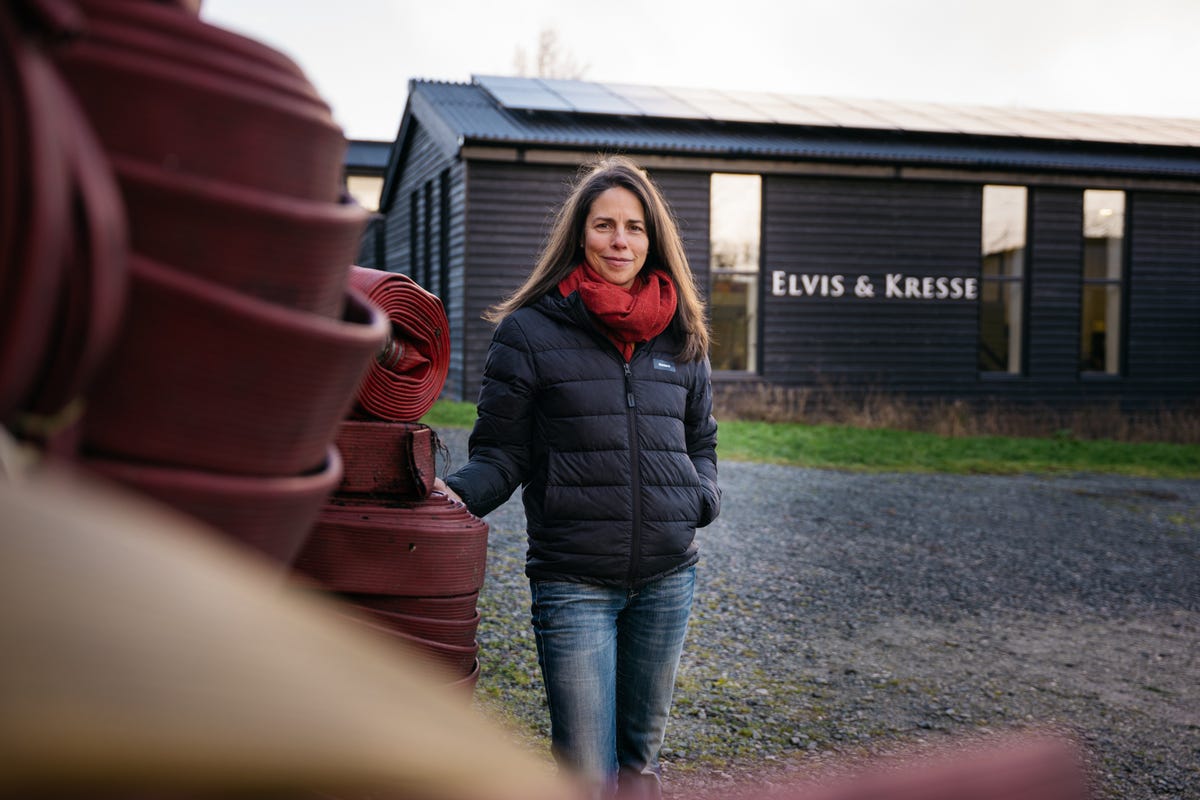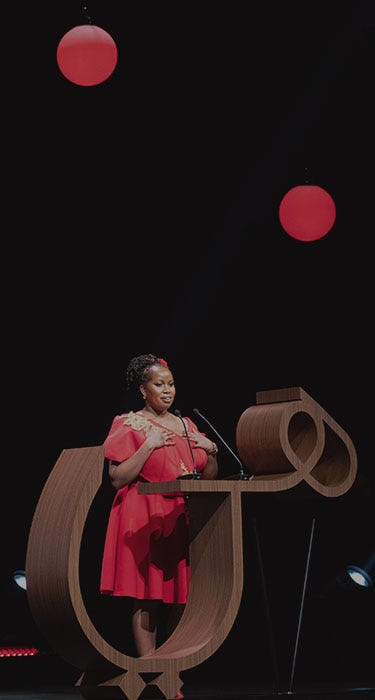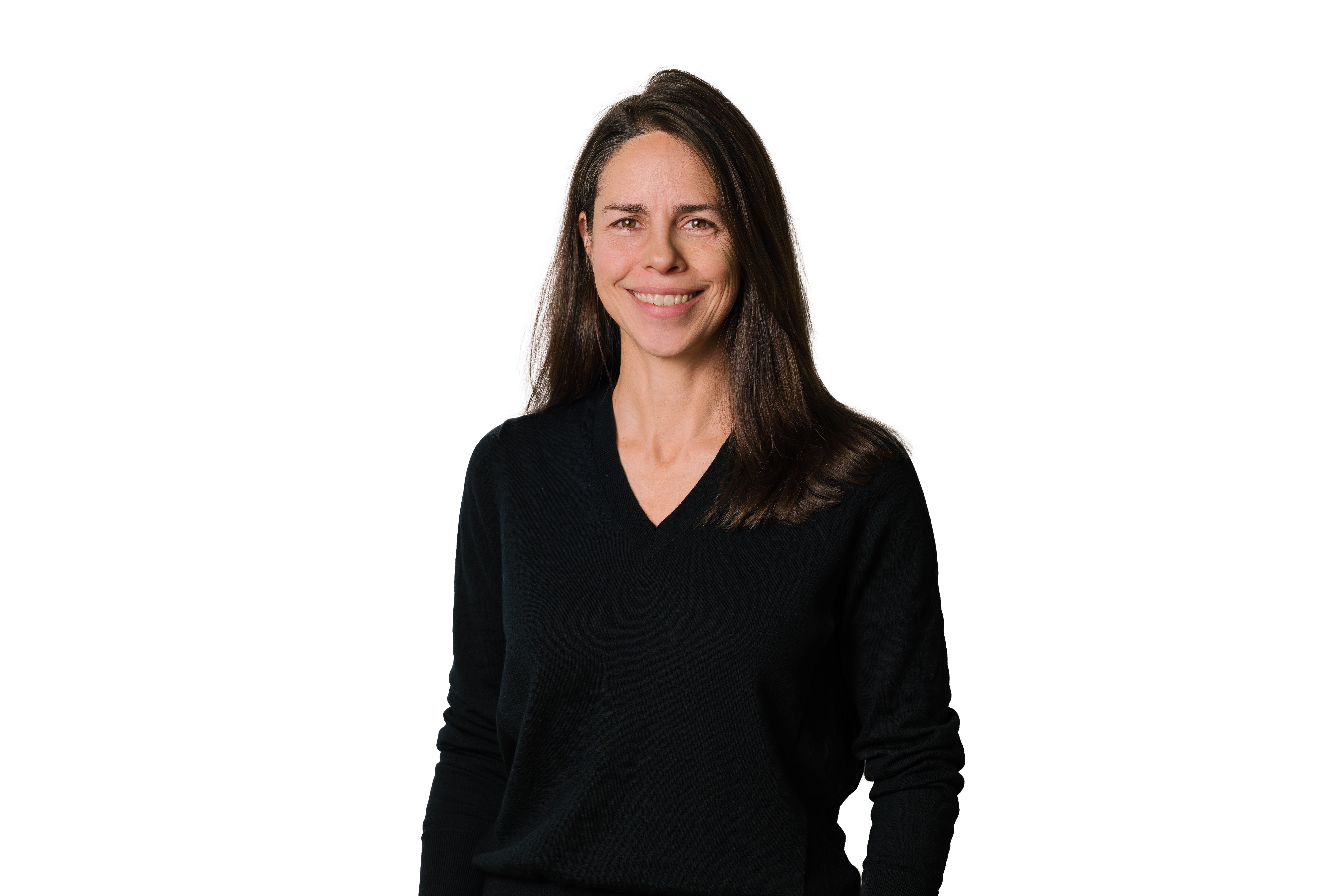KRESSE WESLING
A BUSINESS WITH RESCUE AND GIVING BUILT IN
How Elvis & Kresse turned 300+ tons of waste into a thriving luxury accessory brand.
This series of articles showcases our 2025 Impact Awardees. The Impact Awards are dedicated to former Cartier Women's Initiative Fellows who have achieved extraordinary impact. Each of these nine exceptional women impact entrepreneurs has an inspiring story to tell about her journey to success.
This is the story of Kresse Wesling, a 2011 fellow and 2025 Impact Awardee.
Born in Western Canada, Kresse spent her childhood exploring the majestic Rocky Mountains. Some of her most treasured memories are of camping trips in nature, sharing a space with moose and grizzly bears.
In 2025, you are most likely to find her wearing muddy wellies on the Elvis & Kresse farm in the south of England, wrangling sheep or learning to make wine. But what brought the co-founder of a luxury goods and accessories brand to rural Kent, and what is the connection between organic manure and handbags?
The red thread is nature, and Kresse’s fervent belief that “We don't have a future for civilization unless we have a healthy shared home."

A fashion radical
It is crucial to note that this is not your typical luxury accessory brand. Elvis & Kresse rescues and transforms industrial and commercial waste, including fire hoses and scrap leather, into luxury goods and accessories. Now 20 years old, its circular approach to fashion was seen initially as radical. However, it paved the way for recycled and repurposed production materials, which can now be seen across the fashion industry from top to bottom.
Kresse came to work in fashion almost by accident — the waste came first, and fashion was the solution.
A chance encounter with the London Fire Brigade in 2005 made her aware that tons of damaged decommissioned hoses were sent to landfill each year, unable to be recycled. She was struck by the beauty of the coils of robust, lustrous red rubber and horrified by the idea that it would simply be wasted. This experience sparked a realization of the untapped potential of waste materials and kindled a drive in Kresse to find a solution.
After much experimentation, Kresse and her business partner Elvis struck gold — once pressed, the durable lengths of rubber could be transformed into sturdy yet stylish accessories, starting with belts.
Impact-first design
14 years on from joining the Cartier Women’s Initiative in 2011, Elvis & Kresse has gone from strength to strength. Its product range has expanded to encompass bags of all sizes, notebooks, key rings and more. A partnership with Burberry led to a new product range using the British fashion house’s waste leather. Swathes of favorable press coverage and high-profile partnerships have helped earn the brand a legion of loyal customers.
Sales are not the main way Kresse measures success, however. As one of the founding B Corps in the United Kingdom, Elvis & Kresse was built for positive impact, building profit from purpose.
She explains, “We serve our entire ecosystem. We serve every stakeholder within that, from the people who use our belts to hold up their jeans, to our charity partners, to the 35 apprentices we have trained. Growth is much less important to me than impact.”
She continues, “Our business has rescue and giving built in — these aren't add-ons, they are the core of what we do.”
So far, Elvis & Kresse has rescued over 315 tons of waste from landfill. It also donates 50% of its profits to charity, with over $500,000 disbursed so far. It has a portfolio of charity partners linked to the different waste materials it repurposes. For example, through its partnership with The Firefighters Charity, the business has covered the cost of over 29,000 therapy sessions for firefighters.
For 15 years, Elvis & Kresse revolved around these three core pillars: rescue, transform and donate. In 2016, Kresse saw the potential to amplify her positive impact even further by evolving the business and taking a bold step into the unknown.
Operating regeneratively
This takes us back to the Kent countryside. Kresse started to think about operating more regeneratively and contributing more directly to tackle climate change and protecting biodiversity. Her solution was to buy a farm, with the ultimate ambition of generating more renewable power, cleaning more water and sequestering more carbon than Elvis & Kresse uses. Ambitious steps including developing a wetland sewage system, exploring regenerative agriculture and building a new workshop using straw bales have moved the business closer to this goal. Regular workshops and events help to spread the word about the business’ approach to preserving the planet.
Full of energy and passion, Kresse is excited by this fresh challenge and evolution of her business. She closes with, “This is the work of a lifetime. And it's always fascinating. There's always more to do. There's always more to learn.”
PHOTO GALLERY
Read More

Awards
2025 Impact Awards
Explore the 2025 edition of the Cartier Women's Initiative Impact Awards.

Community
Kresse Wesling
Find out more about Kresse Wesling, 2011 fellow, 2025 Impact Awardee, and co-founder of Elvis & Kresse.

Insights
Blog
Click here to discover the other 2025 Impact Awardees, or read community success stories.





